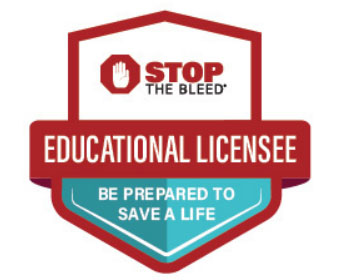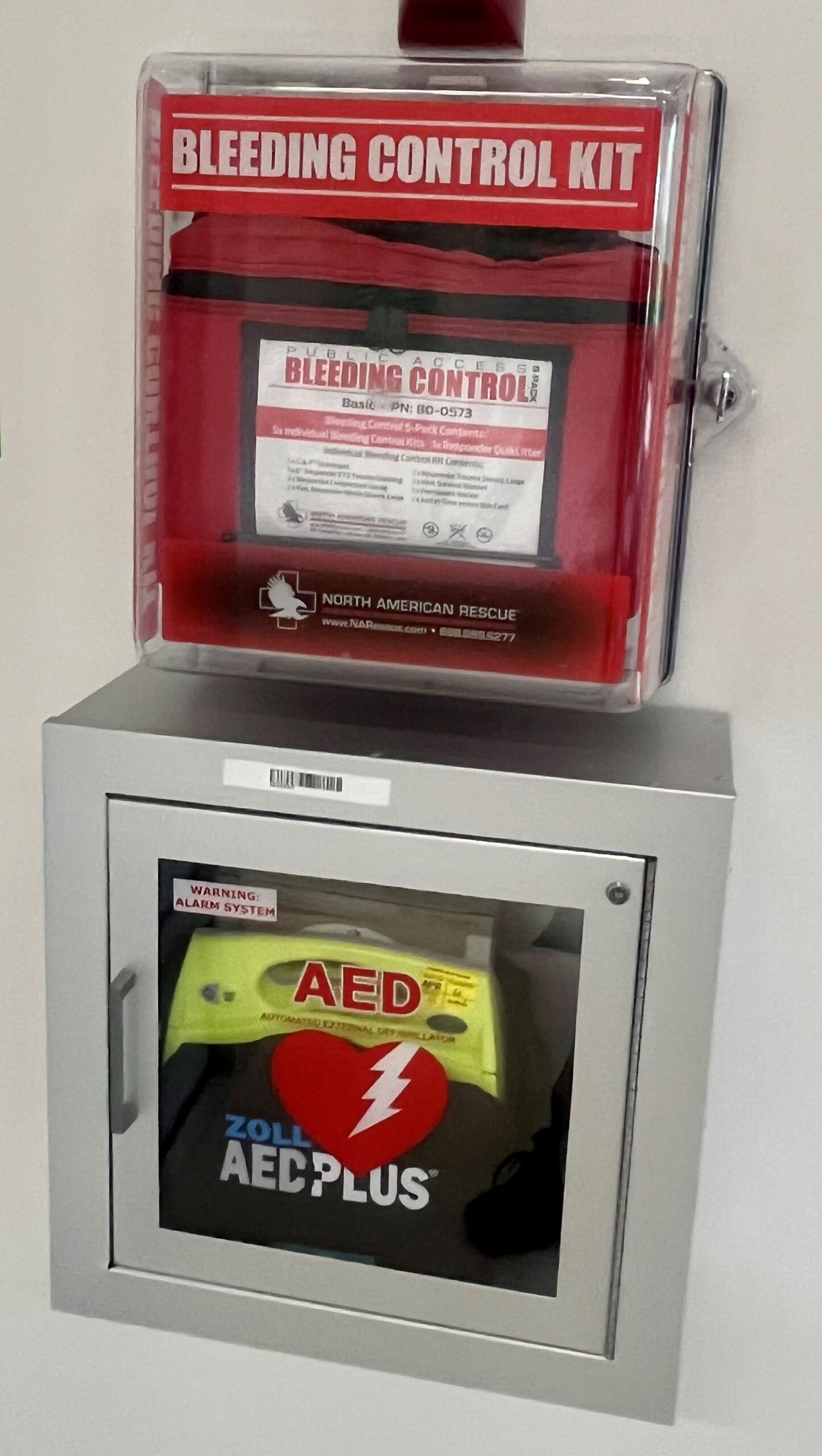The UNMC HEROES Program has been awarded an educational license to teach the STOP THE BLEED program at the med center and across Nebraska to health care professionals, students and community members.
Stay tuned to UNMC Today and Nebraska Medicine NOW for an announcement of future training classes to be held on campus.
The course teaches participants to recognize life-threatening bleeding and intervene effectively through three simple techniques — applying direct pressure, packing a wound or applying a tourniquet.
 |
"Anyone can become an immediate responder and potentially make a difference between life and death for someone who is bleeding," said Austin Brake, program coordinator for the HEROES (Healthcare and Emergency Responder Organization Education through Simulation) Program.
- Save a life: What everyone should know to stop bleeding after an injury
- STOP THE BLEED: Save a life
A new online interactive course gives participants the knowledge they need to complete the lecture portion of the course. Participants then must complete the skills portion of the training prior to receiving their certificate of completion.
The online course takes no longer than 30 minutes. This must be completed prior to attending the in-person skills session.
Individuals attending the skills session will be required to bring proof of completion for the online module. A printed copy of the email confirmation is preferred, but showing the confirmation of completion email on a mobile device at check-in will work too.
HEROES is the second organization in Nebraska to receive an educational license from the U.S. Department of Defense Combat Casualty Care Research Center in partnership with the American College of Surgeons and the STOP THE BLEED Coalition.
"Uncontrolled bleeding is the number one cause of preventable death after injury in the world," Brake said. "HEROES has been teaching hemorrhage control and emergency tourniquet application for years.
"We are well-prepared to provide this life-saving training more officially under the STOP THE BLEED banner. Similar to the use of CPR and AEDs, improving public awareness about how to stop severe bleeding can be the difference between life and death for an injured person. More than 1.9 million people have already learned the essentials to control bleeding, and this number continues to grow."

A bleeding control kit paired with an AED. Two years ago, Nebraska Medicine Trauma Education received a grant from the Nebraska Medicine Guild to purchase and install kits at key points at the med center.
Kits are installed across campus, and more will be installed. The HEROES Program purchased kits for each UNMC College of Nursing campus across the state and is working to obtain more kits to be installed on campus.
Organizers are finalizing the list of places with a kit installed or planned.
Instructors in the program or those interested in becoming volunteer instructors to support this campaign are asked to fill out the online form.
Spearheaded by the UNMC College of Nursing and in collaboration with the UNMC College of Medicine, College of Allied Health Professions and the Center for Preparedness Education, HEROES has been providing emergency preparedness training and education for health care providers and students across Nebraska and beyond since 2005. HEROES is funded through a University of Nebraska Programs of Excellence Grant and provides education through its website and mobile simulation unit.
Learn more about the HEROES Program online.
The program's roots trace to April 2013, when, following the shooting at Sandy Hook Elementary School in Newtown, Conn., the American College of Surgeons convened the Joint Committee to Create a National Policy to Enhance Survivability from Intentional Mass Casualty and Active Shooter Events. This was done in collaboration with the medical community and representatives from the federal government, the National Security Council, the U.S. military, the Federal Bureau of Investigation and governmental and non-governmental emergency medical response organizations, among others.
The committee was formed to create a protocol for national policy to enhance survivability from active shooter and intentional mass casualty events. One of the committee’s reports is called the Hartford Consensus. The campaign is a direct result of the Hartford Consensus III: Implementation of Bleeding Control. The Hartford Consensus recommends that all responders have the education and necessary equipment for bleeding control and strongly encourages bystanders to act as immediate responders to stop bleeding.
In October 2015, the White House launched STOP THE BLEED, with a call to action to begin training more people to become immediate responders during a bleeding emergency until professional help arrives. The program is operated under a licensing agreement granted by the Department of Defense.
